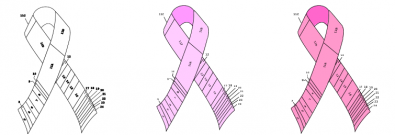CanRisk Programme
The main objective of the CanRisk programme is to enable cancer risk prediction within routine front-line healthcare, to facilitate the identification and management of at-risk individuals and to promote cancer prevention and early-detection.
Cancer Data Driven Detection (CD3) Programme
Cancer Data Driven Detection (CD3) is a multidisciplinary and multi-institutional strategic national research initiative dedicated to using data to revolutionise our understanding of cancer risk and enable early interception of cancers. It is major, multi-million-pound flagship investment funded through a strategic programme award from Cancer Research UK, the National Institute for Health and Care Research (NIHR) and the Engineering and Physical Sciences Research Council (EPSRC); in partnership with Health Data Research UK (HDR UK), and the Economic and Social Research Council’s Administrative Data Research UK programme (ADR UK).
BrOvED Programme
BrOvED programme is a longitudinal study of women at high-risk of breast or ovarian cancer for early detection. It aims to develop resource suitable for wide range of assays from EMBRACE and EMBED studies.
EMBRACE
The primary purpose of the EMBRACE study is to follow-up a cohort of women and men with inherited faults in the BRCA1, BRCA2 and other breast, ovarian and prostate cancer susceptibility genes, collecting associated epidemiological, clinical, pathological, genetic and biomarker data. This cohort provides a unique long-term resource for studying cancer epidemiology in this population and conducting cancer early detection studies.
EMBED
The EMBED study aims to look for blood markers that would aid an early detection of breast cancer. We have recruited over 3700 women with a strong family history of breast cancer and who are eligible for annual mammogram screening. Blood samples were collected over a number of years which form an important resource to look back on and analyse in the event of a breast cancer diagnosis.
SEARCH
The SEARCH Study is an ongoing study of genetic susceptibility to the common cancers, the main purpose of which is to determine how normal, common genetic variation affects cancer risk. The study hopes to achieve this by collecting a blood sample and information on family history and lifestyle from men and women in East Anglia who have been diagnosed with specific cancers.
Tumour Growth Kinetics
This project, ‘Computational modeling of tumour growth kinetics to inform early cancer detection’, develops mathematical models using clinical data to simulate tumour growth, its metastatic spread, and biomarker shedding. This is to individualise early detection strategies and identify cancer types most likely to be candidates for new approaches to early detection. Targeted cancers include prostate, kidney, lung, breast and ovarian. This study is funded by the CRUK International Alliance for Cancer Early detection (ACED) and involves collaboration with investigators from Stanford University, Mount Sinai Cedars-Sinai Medical Centre, UCL, and the University of Cambridge.
The MSM-CanProg (UK)
This encompasses continuous-time multistate survival models (MSM) and a microsimulation based on the MSM framework. These models are to estimate natural history parameters - such as sojourn time, sensitivity, age of entry into screen-detectable state, and the effect of covariates, including time-varying covariates, on transition parameters. They also simulate life trajectories to evaluate screening strategies, assessing outcomes including cancer deaths, interval cancers, and overdiagnosis.
Organisational Readiness for Implementation
This study assesses the extent of healthcare organisational readiness for implementing risk-stratified breast cancer screening in the Canada. It explores the barriers and facilitators for implementation, and co-develops strategies with policymakers, screening providers, and those delivering screening to increase readiness for implementation. This study is part of the PERSPECTIVE I&I, led by Jacques Simard (Université Laval) and Anna Chiarelli (University of Toronto).
Predict Kidney
Lead Investigator: Hannah Harrison
Email: hh504@medschl.cam.ac.uk




